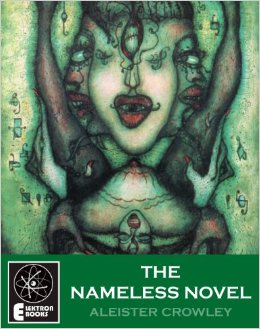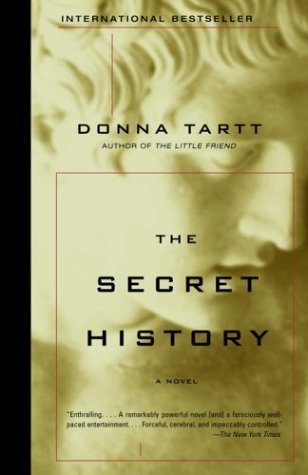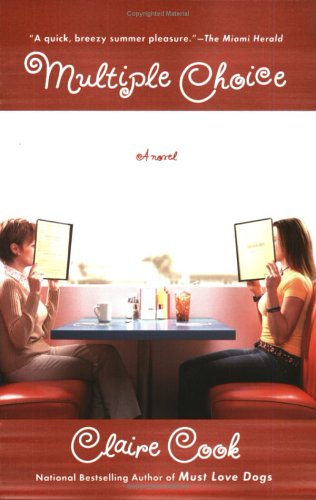Nameless Novel
 I was talking with a co-worker about movies, and found that we have similar interests in things that are strange and disturbing, so he recommended this book to me. It’s described as “infamous” because it is so depraved. haha It feels wrong to begin this post with such a disturbing book, but I make these lists in the order in which I read the books.
I was talking with a co-worker about movies, and found that we have similar interests in things that are strange and disturbing, so he recommended this book to me. It’s described as “infamous” because it is so depraved. haha It feels wrong to begin this post with such a disturbing book, but I make these lists in the order in which I read the books.
So what did I think of this one? It was okay. It definitely contained a lot of offensive material (to the exclusion of anything else), but it was so devoid of anything real that it wasn’t actually disturbing to me. There has to be some sense of reality, of humanity, of something you can relate to in order to evoke any real emotion or response, but because it was all just a jumble of outlandish lewdness and violence, it was almost like reading a string of unrelated words. I’m glad I read it, because it’s different from anything else I’ve ever read, but basically it was boring.
Also, I will reiterate that my Book Report posts are not book recommendations, just documentations of what I’ve read. I would definitely not recommend this particular book to 99% of people.
The Psychopath Inside
 I’ve been interested in serial killers for a while, and understanding what in the world makes them the way they are. Over the years, I’ve learned more about psychopathy and sociopathy (basically the same things), not only in relation to serial killers, but just as a way to understand those individuals we see regularly who seem to have no concern for anyone but themselves; people that I wouldn’t otherwise understand at all.
I’ve been interested in serial killers for a while, and understanding what in the world makes them the way they are. Over the years, I’ve learned more about psychopathy and sociopathy (basically the same things), not only in relation to serial killers, but just as a way to understand those individuals we see regularly who seem to have no concern for anyone but themselves; people that I wouldn’t otherwise understand at all.
I heard about this book while listening to the author’s TedTalk on a podcast. His TedTalk was all about his neuroscience research and his discovery that he himself is a “low-level” psychopath. He breaks down what psychopathy is, and possible causes of it, as well as how it might be beneficial in some ways. Very interesting!
The Woman In White
 This is considered to be one of the first mystery novels written, which sounded interesting to me. Unfortunately, I found it boring. It was a bunch of mess around inheritances because no one actually had real jobs back then so they had to just kill each other or pretend to be someone else in order to “maintain their status in life.” Also, it was too long for what it was. Meh.
This is considered to be one of the first mystery novels written, which sounded interesting to me. Unfortunately, I found it boring. It was a bunch of mess around inheritances because no one actually had real jobs back then so they had to just kill each other or pretend to be someone else in order to “maintain their status in life.” Also, it was too long for what it was. Meh.
Before Ever After
 It’s like a time-travel romance fluff. Meh, it was okay.
It’s like a time-travel romance fluff. Meh, it was okay.
The Secret History
 So good! It felt really meaty, like I was reading a “real book.” I’m not sure exactly what that means, but that’s what it felt like. It’s about a tight-knit group of college students who find themselves in a sticky situation. The timeline is the most interesting part, as we learn *what* happens before we learn *why* it happened.
So good! It felt really meaty, like I was reading a “real book.” I’m not sure exactly what that means, but that’s what it felt like. It’s about a tight-knit group of college students who find themselves in a sticky situation. The timeline is the most interesting part, as we learn *what* happens before we learn *why* it happened.
The New Jim Crow
 I read this for work. It’s about how our criminal “justice” system targets young black and brown men, and the name alludes to how it has become our society’s new way of segregating the races. I have no real response other than a sad, “yup.” This system is terrible in many ways, and it needs to be dismantled and rebuilt entirely.
I read this for work. It’s about how our criminal “justice” system targets young black and brown men, and the name alludes to how it has become our society’s new way of segregating the races. I have no real response other than a sad, “yup.” This system is terrible in many ways, and it needs to be dismantled and rebuilt entirely.
A Visit From The Goon Squad
The story follows a handful of characters whose lives intertwine, and the timeline is disjointed (you never know if you’re reading about things that happened last week or 2 decades ago). The characters aren’t particularly likable, and they don’t really do anything of interest. It wasn’t my thing. I think you need to read it in just a few sittings because picking it up a couple times a week (which is how I read) makes everything too messy. You can’t keep track of who’s who and what’s happening when. Oh well.
The Outcasts
 I tend to like westerns, and this one seemed to have a cool heroine, so it seemed like a good prospect. It was okay, but I didn’t have much respect for the female protagonist (she made terrible decisions, and was a bit of a pawn), so it was kind of a let down. Though, one of the characters complained about the The Woman In White, which made me giggle.
I tend to like westerns, and this one seemed to have a cool heroine, so it seemed like a good prospect. It was okay, but I didn’t have much respect for the female protagonist (she made terrible decisions, and was a bit of a pawn), so it was kind of a let down. Though, one of the characters complained about the The Woman In White, which made me giggle.
Looking Backward
 My dad mentioned this book to me (though he doesn’t remember it) when we were talking about economic/social structure, and communism/socialism/idealism. It was kind of a “You think things could be better? Read this book. You’d probably agree with him [you silly idealistic communist].” But in a nice way. 🙂
My dad mentioned this book to me (though he doesn’t remember it) when we were talking about economic/social structure, and communism/socialism/idealism. It was kind of a “You think things could be better? Read this book. You’d probably agree with him [you silly idealistic communist].” But in a nice way. 🙂
The book is essentially the author’s description of how he thinks society should (and possibly would?) be organized in the future. He wrote the book in 1887, imagining (fantasizing about) life in the year 2000, when everything is perfect, there is no poverty, no greed, nothing bad whatsoever, basically. He never uses the word “communism” (my favorite euphemism he used was “living in concert”), but socialism was pretty much what he described.
I mean…I don’t have any problems with his ideas, but throughout the book I was just imagining patting him condescendingly on the head like, “Yeah Edward, that’s a nice idea.” Kind of how people do to me. Of course he’s being naive. Of course it’s too perfect to ever occur in reality (especially expecting such a drastic change in just 100 years and without any growing pains, or sense of what steps it took to get to the end point). But I don’t think it’s unrealistic to believe that our economic and social structure could be drastically improved, and that we should work toward something like this. It was a nice model for inspiration.
The Asylum
 A page turner! It had a lot of similarities to The Woman in White (hidden identities, inheritances, mistaken parentage, accidental commitment into an insane asylum), but it was much more interesting. It was fun, suspenseful, and sometimes scary. Loved it!
A page turner! It had a lot of similarities to The Woman in White (hidden identities, inheritances, mistaken parentage, accidental commitment into an insane asylum), but it was much more interesting. It was fun, suspenseful, and sometimes scary. Loved it!


























































